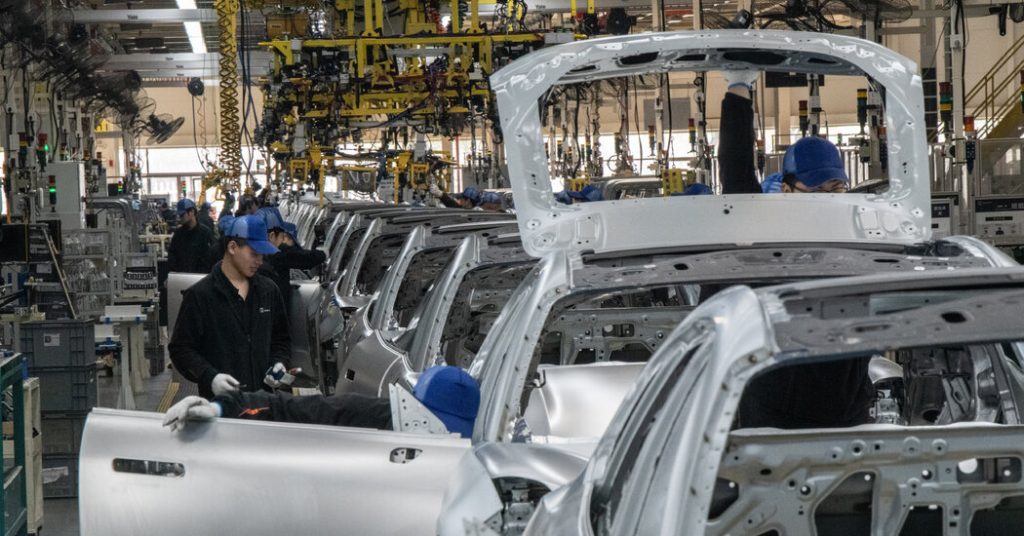President Biden has announced an increase in tariffs on various Chinese imports, including electric vehicles, solar cells, semiconductors, and advanced batteries. This decision is aimed at protecting strategic American industries from unfair competition subsidized by Beijing. The president also plans to maintain tariffs on over $300 billion worth of Chinese goods implemented by his predecessor, President Trump, despite criticizing them as taxes on American consumers during his campaign. This move shows Biden’s efforts to continue the tough-on-China stance while focusing on sectors crucial to the United States, such as clean energy and semiconductors.
The increased tariffs, affecting approximately $18 billion in annual imports from China, include raising tariffs on electric vehicles to 100% and doubling tariffs on solar cells, advanced batteries, and semiconductors. Biden aims to shield American industries receiving federal subsidies for transitioning to clean energy by implementing these tariffs. His administration is betting on government investments in various sectors, including electric vehicles, to create middle-class jobs and secure support from swing states with industries in these fields. The administration emphasized the impact of tariffs on states like Michigan and Pennsylvania that are benefiting from Biden’s investment goals.
Treasury Secretary Janet Yellen defended the new tariffs as a response to China’s excess industrial capacity, stating that they are essential to protect American workers and the economy. The administration denied that the tariffs were “anti-China,” but rather a means to counter unfair trade practices by Beijing. China’s Ministry of Commerce criticized the decision and vowed to defend its rights and interests. The differing approaches of the Trump and Biden administrations reflect a broader strategy by Biden to counteract China’s economic practices while supporting American industries and workers.
The tariffs imposed by Biden target industries critical to the United States, such as clean energy, semiconductors, and medical equipment essential for pandemic response. The administration aims to reduce American reliance on Chinese supply chains by increasing tariffs on specific products. These moves were praised by industries impacted by cheap Chinese exports, such as solar energy, and steel and aluminum production. Some economists caution against tariffs due to their impact on domestic consumers through increased prices, but administration officials claim that the narrowly targeted tariffs will not add to current price growth.
The political calendar and escalating trade tensions between the U.S. and China likely influenced the timing and scope of the tariffs. Biden’s decision to increase tariffs in specific sectors where the U.S. has invested heavily demonstrates a commitment to American industries and job creation. The administration justifies the tariffs as necessary to counter China’s unfair trade practices and intellectual property theft. Despite criticisms of tariffs as taxes on consumers, union leaders and Democratic lawmakers are expected to support Biden’s decision, recognizing the need to address trade imbalances with China.
The embrace of tariffs by both Trump and Biden reflects a growing awareness of Chinese trade practices that have negatively impacted American workers. The shift in stance towards tariffs is seen as a response to the economic challenges faced by American communities due to China’s unfair trade practices. Trade experts note that escalating tariffs on targeted imports from China are the result of a competitive industrial policy game and looming election season pressures. Biden’s position on tariffs is seen as a strategic and responsive move to address concerns raised by American citizens and communities across the country.


